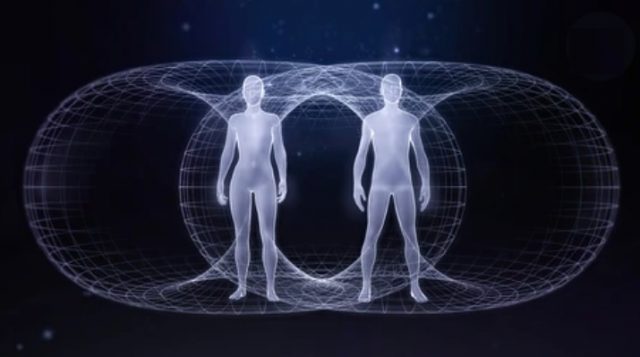Why do Experiential Activities?
What differentiates them from other developmental activities?
This article will try to clarify the benefits of Experiential Activites along with examples.
At Equinesprit part of the work in personal development is done through developing the knowledge base.
However because we know that transformation and other changes can only be done when anchored in the body our programs go beyond the transmission of knowledge into the realm of experiential activities. In essence these activities allow us to experiment and test this new knowledge in a direct physical experience. It is this direct physical experience that allows us to pass superficial comprehension in the explicit memory base into profound anchored experienced transformation anchored in the implicit memory.
Experiential Activities :
The Body and the Mind
in Personal Development

It is through experiential activities lived in a mindful state that profound transformations can occur within us.
Many of us at some point in our lives feel the need for change.
Very often what form this change should take can be vague, and we just simply feel that something needs to evolve. Perhaps there is a growing sense of dissatisfaction, or even of sadness, or maybe anger. Sometimes we think we know why and we want to act and at the same time we feel lacking in direction and quickly find ourselves in uncomfortable stasis. Even worse while we haven’t really managed to identify where this dissatisfaction comes from we start looking around for reasons in our close environment and for want of other ideas we settle on the most probable hypothesis.
When these emotions incite us to change in order to experience more well-being in our lives, we can look in various directions: learn new skills, go on retreats, and consult psychologists. These initiatives can certainly be interesting and allow us to learn. However, very often the knowledge that we gain from them does not engender the profound transformation that we are hoping for. We find we have simply added knowledge on top of other layers of knowledge, while it was the underlying foundation that we were hoping to dismantle and rebuild.
This disappointing result is probably due to the different nature of being and of knowing. Also, while different in their nature these two capacities need to be in harmony for us to advance. When they are expressing different things this can result in us feeling confused and unable to advance in a satisfactory way.
The objective of the sessions at Equinesprit is to develop the level of consciousness of the 3 elements vital to our development: our way of being, our way of knowing, and our way of living: consciously engaging these capacities in our present moment. The three experiential practices of Sophrology, Equitherapy, and Non Violent Communication are the means by which we put this in place.
What do Experiential Activities do for us?
Example : Any activity that is body centred such as martial arts, dance, music, art, sophrologie, equitherapy, meditation, holotropic respiration, pilates, le sport en générale. (This list is not exhaustive).
What type of development do these activities encourage? : Procedural memory (reflexes) and perceptive memory using the 5 senses is developed. A good example is riding a bicycle.

Characteristics of this type of memory: non verbal, implicit, and are part of the “how to be” information. We can access our deeper consciousness and our intelligence through our lived physical experience. This type of memory is implicated in building the personality, deciding how thoughts are formed and organised, and in the way we anticipate our future and make decisions for it. It is this non verbal memory that is the base of our life and the way our life is imagined, constructed, and experienced.
The key reasons to work with this type of memory: When we want to change our lives because our daily routine leaves us feeling dissatisfied. When our emotions indicate that a change is needed: perhaps we feel depressed, sad, angry, frustrated, or lethargic. When this is recurrent it becomes vital to explore the way we function at an implicit level. We are able to understand how we function and change this if it no longer corresponds to our key values. In doing this we have the capacity to built a new way of feeling, reacting, and doing so we may have a daily routine that refreshes us, leaves us feeling revitalised and excited to continue the next day.
There are more and more scientific studies that show evidence of accessible innate intelligence within the body. Connecting and listening to this intelligence can be a powerful help in matters of health, relationships, decision making, and of our general well-being. We will surely develop this theme more extensively in another article, because it is the foundation of the work that is proposed in Sophrology and Equitherapy activities.
Activities for Developping Knowledge
Examples : any kind of learning practice that communicates factual knowledge. For example lessons or training programs that teach concrete facts such as learning musical solfa, learning the syntaxe of a foreign language, learning historical dates, reading and understanding calculations and recipes in order to eat more healthily.
What do these exercises develop ? These exercices develop semantic memory, or verbal memory.
The characteristics of this memory : memorisation of facts and their application which is in the realm of applied knowledge. This type of verbal and explicit learning is often done through reading or listening to a teacher.

Why should we develop verbal memory ?
At the end of this type of learning we will have new information with explications as to how and when you apply it. These are concrete, applicable facts that you can memorise. They are accessible to everyone who wishes to discover them. This verbal memory is our interface with our environment, because it assimilates the rules of life through a verbal, logic support. This verbal support, including thought, verbal communication, allows several of us to share the same rules, allowing for a social cohesion.
Careful! The fact that semantic explicit memory is verbal means it is continually in action. Some studies show that we have an average of 60, 000 thoughts a day, and that they are recurring not original. This means that the explicit memory can have an important impact on our implicit memory. In other words it can be that “we are what we think”. A thought often repeated will pass into implicit memory and become integrated in our way of being and of constructing our future.
One really interesting point is to consider that studies have shown that semantic memory, particularly concerning recurring thoughts, functions on a different level from the state of mindfulness, in other words when we are in a flow of repetitive thoughts we reduce our capacity to respond to our real time environment. Our replies and reactions can therefore lack relevance because they are too influenced by our thoughts which are not aligned with our present situation. This is a vast subject and will be the subject of other articles which will follow the most recent neuroscientific developments.
To finish this current article however, let’s reiterate again our goal : To define in a fully conscious and mindful way, our way of being through implicit learning, our way of knowing through explicit learning, and our way of living which actively and consciously combines the two. In this mindful experience we are more likely to respond to our current situations in a way that respects our needs and our values.
So, the only thing left to do is discover the gems at our disposal by connecting with our body through conscious attention. Careful, this process can reveal unexpected and precious gifts!
